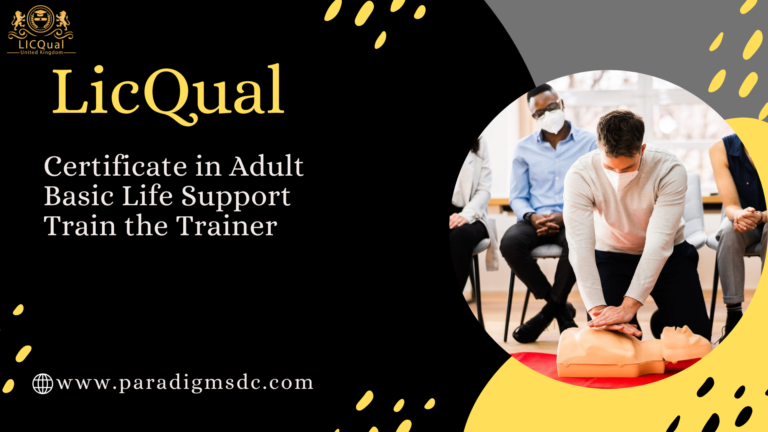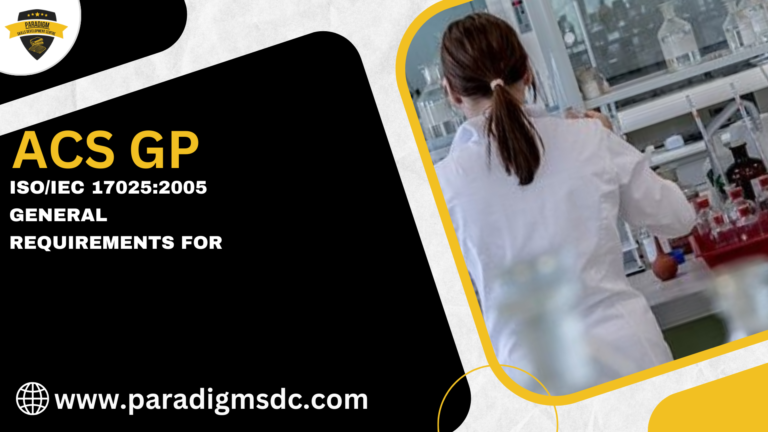Course Introduction
The ICTQual Level 3 Award in Advanced Cardiac Life Support (ACLS) focuses on the advanced management of cardiac arrest, acute coronary syndromes, stroke, and other life-threatening medical emergencies. This course is essential for healthcare providers who are often the first responders to such emergencies, as it covers a range of critical interventions and decision-making processes that can save lives.
Course Overview
This course offers a blend of theoretical knowledge and practical skills through online modules, interactive workshops, and hands-on simulations. Participants will learn how to identify and treat cardiac arrest and other cardiovascular emergencies, perform advanced airway management, and use defibrillators effectively. The course also emphasizes team dynamics and communication during resuscitation efforts.
Course Study Units
- Cardiac Anatomy and Physiology
- Pathophysiology of Cardiac Arrest
- Basic and Advanced Life Support Techniques
- Advanced Cardiac Life Support Algorithms
- ACLS Pharmacology
- Effective Resuscitation Team Dynamics
- Post-Resuscitation Care
- Simulation-Based Learning
- Legal and Ethical Considerations
Learning Outcomes
Upon completing the ICTQual Level 3 Award in Advanced Cardiac Life Support (ACLS), participants will be able to:
Cardiac Anatomy and Physiology
- Identify: Identify the key structures and chambers of the heart and major blood vessels.
- Explain Function: Explain the function of each component of the cardiac system in maintaining circulation and oxygen delivery.
- Describe Blood Flow: Describe the flow of blood through the heart and systemic circulation.
- Recognize Anomalies: Recognize common anatomical anomalies and variations that may affect cardiac function.
Pathophysiology of Cardiac Arrest
- Understand Causes: Understand the pathophysiological mechanisms underlying cardiac arrest, including arrhythmias, ischemia, and electrolyte imbalances.
- Identify Risk Factors: Identify common risk factors and conditions predisposing individuals to cardiac arrest.
- Interpret Rhythms: Interpret cardiac rhythms associated with cardiac arrest and differentiate between shockable and non-shockable rhythms.
- Explain Sequelae: Explain the potential sequelae of untreated or prolonged cardiac arrest on organ systems.
Basic and Advanced Life Support Techniques
- Perform High-Quality CPR: Perform high-quality CPR according to current guidelines, including proper hand placement, compression depth, rate, and recoil.
- Demonstrate Airway Management: Demonstrate proficiency in basic airway maneuvers, bag-mask ventilation, and advanced airway techniques.
- Utilize AEDs: Demonstrate the proper use of automated external defibrillators (AEDs) in cardiac arrest scenarios.
- Manage Cardiac Arrest: Manage cardiac arrest scenarios effectively, including team coordination and rhythm recognition.
Advanced Cardiac Life Support Algorithms
- Apply Algorithms: Apply ACLS algorithms in various cardiac emergency scenarios, including cardiac arrest, bradycardia, tachycardia, and post-cardiac arrest care.
- Differentiate Treatments: Differentiate appropriate treatments based on patient presentation, rhythm interpretation, and underlying etiology.
- Coordinate Care: Coordinate care among team members according to ACLS algorithms, ensuring timely interventions and effective communication.
- Optimize Outcomes: Optimize patient outcomes through the systematic application of ACLS protocols.
ACLS Pharmacology
- Identify Medications: Identify ACLS medications, their indications, contraindications, dosages, and routes of administration.
- Understand Mechanisms: Understand the pharmacological mechanisms of action for medications used in ACLS, including antiarrhythmics, vasopressors, and sedatives.
- Manage Side Effects: Manage potential side effects and adverse reactions associated with ACLS medications.
- Administer Safely: Safely administer ACLS medications while considering patient factors and drug interactions.
Effective Resuscitation Team Dynamics
- Define Roles: Define and assign roles within the resuscitation team, including team leader, compressor, airway manager, and medication administrator.
- Communicate Effectively: Communicate effectively within the team using closed-loop communication, clear instructions, and situational awareness.
- Demonstrate Leadership: Demonstrate leadership skills in coordinating resuscitation efforts and managing team dynamics under stress.
- Conduct Debriefings: Conduct effective debriefings following resuscitation efforts to identify strengths and areas for improvement.
Post-Resuscitation Care
- Implement Protocols: Implement evidence-based protocols for post-cardiac arrest care, including targeted temperature management and hemodynamic optimization.
- Monitor Patients: Monitor patients following return of spontaneous circulation (ROSC) for neurological status, hemodynamic stability, and signs of organ dysfunction.
- Optimize Recovery: Optimize patient recovery and minimize complications through comprehensive post-resuscitation care.
- Facilitate Rehabilitation: Facilitate early rehabilitation and multidisciplinary care for patients following cardiac arrest.
Simulation-Based Learning
- Apply Knowledge: Apply theoretical knowledge and practical skills in simulated cardiac emergency scenarios.
- Practice Teamwork: Practice effective teamwork and communication skills in simulated resuscitation scenarios.
- Receive Feedback: Receive constructive feedback from instructors and peers to improve performance and decision-making.
- Enhance Confidence: Enhance confidence in managing real-life cardiac emergencies through repeated simulation practice.
Legal and Ethical Considerations
- Understand Legal Framework: Understand legal responsibilities, regulations, and documentation requirements related to ACLS interventions.
- Ethical Decision Making: Apply ethical principles to decision-making in resuscitation scenarios, including considerations for patient autonomy, beneficence, and non-maleficence.
- Maintain Confidentiality: Maintain patient confidentiality and privacy in accordance with legal and ethical standards.
- Manage End-of-Life Care: Navigate ethical dilemmas related to end-of-life care, withdrawal of life-sustaining treatments, and advanced directives.
Course Benefits
- Advanced Skills: Acquire advanced skills and knowledge in cardiac life support.
- Confidence in Emergencies: Build confidence in managing critical cardiac emergencies.
- Career Advancement: Enhance career prospects in emergency medicine and critical care.
- Improved Patient Outcomes: Contribute to improved patient outcomes through effective emergency response.
- Professional Development: Gain continuing education credits and stay current with best practices in ACLS.
Who Is This Course For?
The ICTQual Level 3 Award in Advanced Cardiac Life Support (ACLS) is ideal for:
- Doctors, nurses, and paramedics working in emergency medicine, intensive care, and critical care units.
- Healthcare professionals who are part of resuscitation teams.
- Medical students and residents looking to enhance their emergency response skills.
- First responders and emergency medical technicians (EMTs).
- Healthcare providers seeking to renew their ACLS certification or gain advanced training.
Future Progression
Upon completing the ICTQual Level 3 Award in Advanced Cardiac Life Support (ACLS), participants can further their education and career development through:
- Advanced Certifications: Pursue additional certifications in pediatric advanced life support (PALS), neonatal resuscitation, or trauma life support.
- Specialized Training: Enroll in specialized training programs in critical care, emergency medicine, or anesthesiology.
- Higher Education: Pursue advanced degrees in emergency medicine, critical care nursing, or healthcare management.
- Leadership Roles: Progress to leadership and supervisory roles within emergency medical services (EMS) or critical care units.
- Continued Professional Development: Participate in ongoing professional development opportunities and advanced clinical practice courses.
The ICTQual Level 3 Award in Advanced Cardiac Life Support (ACLS) is a vital step for healthcare professionals committed to excellence in emergency care. Equip yourself with the skills and knowledge to make a difference in life-threatening situations and elevate your career in the dynamic field of emergency medicine.







